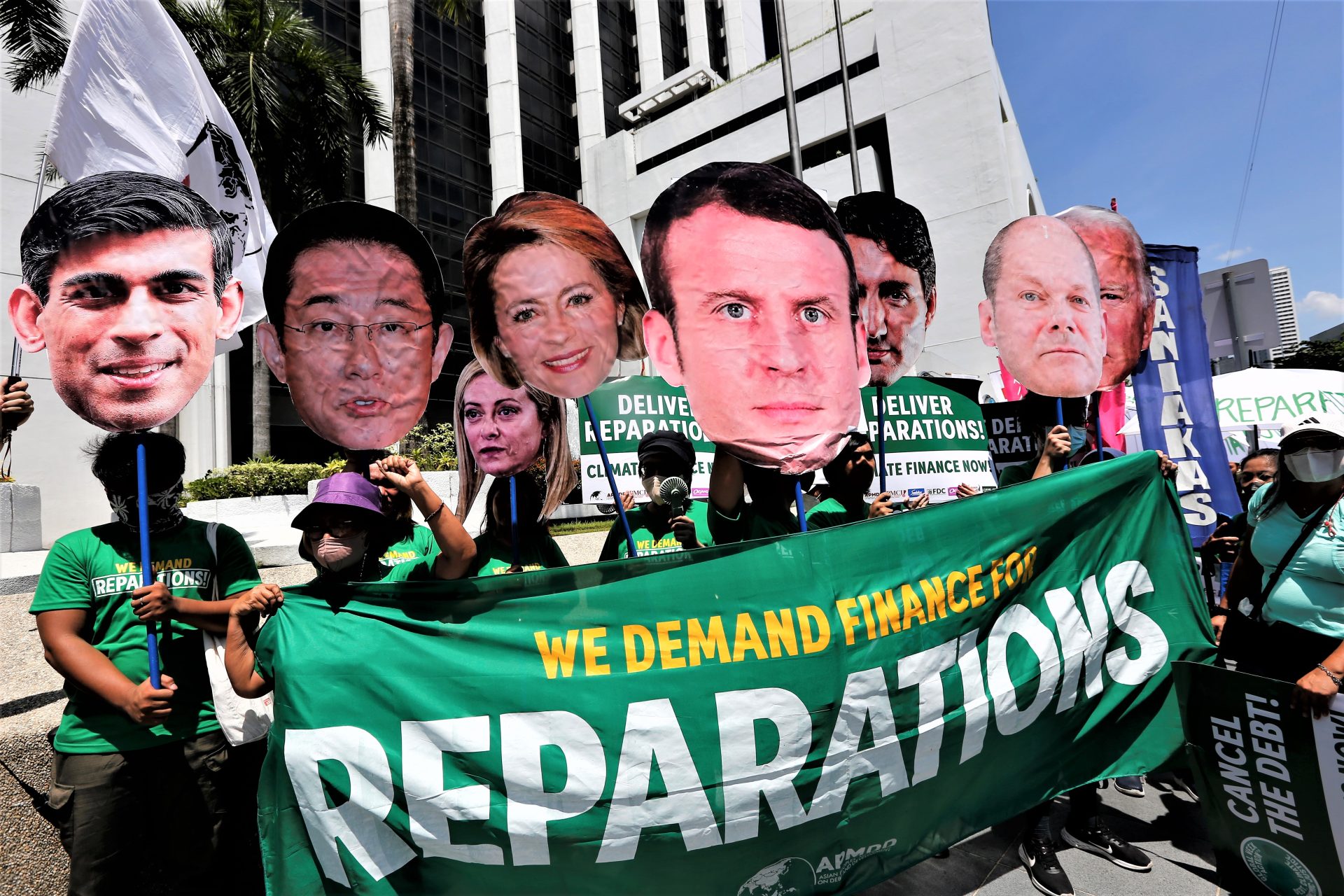Asia-wide mobilizations took place today across seven major cities to urge rich countries to acknowledge their responsibility for providing reparations and unconditional non-debt-creating finance.
Simultaneous protest actions were held in Dhaka, New Delhi, Jakarta, Lahore, Kathmandu, Colombo, and Manila that coincided with the opening day of the Paris Summit for a New Global Financial Pact.
Lidy Nacpil, coordinator of the Asian Peoples’ Movement on Debt and Development (APMDD), expressed concern about the flawed and deceptive financial initiatives proposed during the summit.
“We reject the push for more debt-creating finance, profit-oriented private investments, and flawed market-based schemes supposedly to support development and climate actions in the Global South,” she said.
Nacpil emphasized that the protesters were not seeking charity or aid but demanding “reparations and justice” for the “historical, social, ecological, and climate debts” owed by wealthy countries.
The protesters called for adequate, predictable, and non-debt-creating climate finance, the cancellation of unsustainable and illegitimate debt, and wealth taxes, and an end to illicit financial flows and tax abuses by multinational corporations.
Dilena Pathragoda of the Centre for Environmental Justice said the Global North and profit-driven interests “are only offering more loans that will trap developing countries into more debts, and more derisking and incentives to make it easier for the private sector to make profits”.
The two-day Paris Summit, chaired by French President Emmanuel Macron, aimed to reach a consensus on a new global finance pact to support Sustainable Development Goals (SDGs) targets and the decarbonization of economies.
However, the demonstrators were skeptical of the summit’s outcomes, asserting that it merely promoted the interests of the private sector and perpetuated corporate capture.
Farooq Tariq, general secretary of the Pakistan Kissan Rabita Committee, underscored the need for corporations, especially major polluters, to provide reparations to address the devastating impacts of climate change in developing countries like Pakistan.
“For the people of the South to build more just, equitable, inclusive, resilient, sustainable, and safe societies, huge levels of finance are urgently needed. But we are not seeking more corporate capture of our resources and exploitation of our labor,” said Tariq.
Research has shown that rich industrialized countries, big oil corporations, and billionaires with significant investments in carbon-emitting companies bear the greatest responsibility for climate change.
A new study suggested that these countries could be liable for US$170 trillion in climate reparations by 2050, with an annual payment of approximately US$6 trillion to low-polluting developing nations.
All photos by Jimmy Domingo







